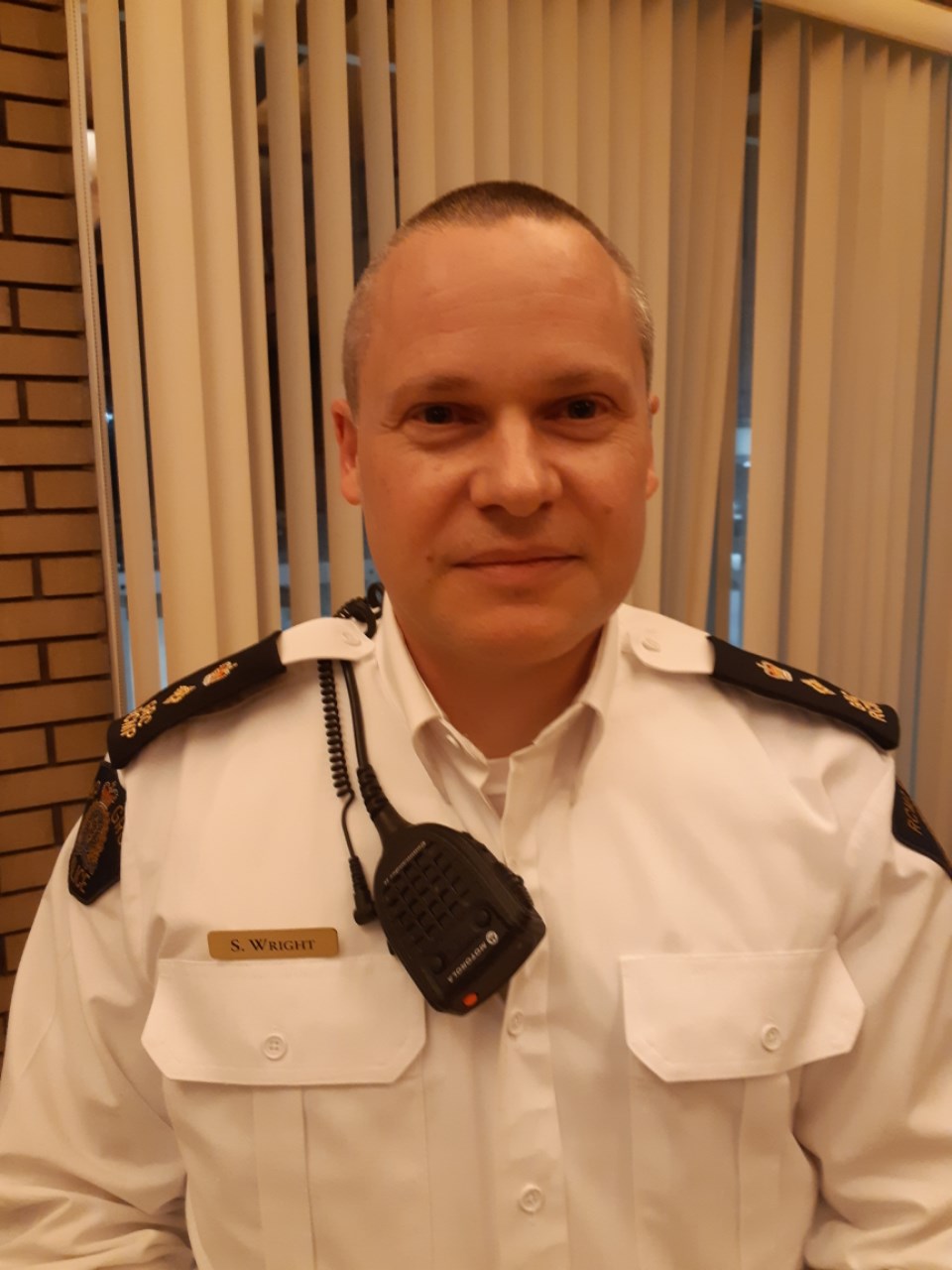The cost of policing Prince George could be on the rise now that the RCMP is in the process of becoming unionized.
The 20,000-member national force expects to begin negotiations for a collective agreement in mid-March, with salaries, staffing levels and benefits identified as the top priorities.
Coun. Brian Skakun expressed his concerns to Prince George RCMP Supt. Shaun Wright at Monday's city council budget meeting and asked Wright if he could divulge any information to help prepare the city for any additional strain on taxpayer resources.
"The short answer is no," said Wright. "If you can figure out what the federal government is going to do, let me know. I do know some communications have been getting out to municipalities to budget for certain amounts each year for incremental (salary) increases."
Wright's attendance at the meeting was to explain the need to hire two RCMP support services staff as a budget enhancement, which council approved unanimously.
"It will allow our investigators to focus on what they do best, and that's go out and be investigators," said Wright. "There is a lot of calls for boots on the ground, but policing has become very complex and there's a lot of work to be done in the background in order to move those investigations from the initial stages right through to a prosecution."
The new city funding will cover the cost of a video analyst to help police sift through what Wright describes as "an explosion in video over the last five years," obtained through surveillance cameras, dash cameras and other sources. It's an intensive time-consuming task which requires hundreds of hours and limits the time officers are free to go out on patrol.
The video analyst position carries a salary of $101,476, while the other other new position is for data processing supervisor, which will pay $91,070 annually. Having the data position filled locally will negate the need to out source investigative work to private companies to obtain evidence stored on cell phones, tablets and computers. It will increase the capacity of the RCMP to package evidence, primarily for serious crimes, and reduce the time it takes to prepare for court cases.
"The actual enhancement is for overtime patrols of the two members as opposed to actual new members," said Wright. "Those members would be scheduled there for the six hours (per shift) and would be dedicated to that. That would be on an ongoing basis so those hours wouldn't be affected by mandatory training, annual leave, that sort of thing."
With the additional staff and yearly salary increases added in, the net operations budget for police protection will cost the city $27.392 million, as compared with the 2019 budget of $26.936 million.
Skakun explained to Wright that one of the presenters at a special meeting in December focused on downtown issues requested a more visible police presence as a means to reduce crime. Wright told council downtown patrols will happen with more frequency as a result of the pending staff hires.
"The enhancement would really provide us the opportunity to do that because those members wouldn't be tasked with transporting prisoners or responding to calls in other areas and they would largely be dedicated to foot and bicycle patrols" said Wright. "We would maintain our downtown safety unit there, which is dedicated to that area. As well, the watch members assigned to that (downtown) area as well as other members would be encouraged to make patrols there on their way in and out the downtown core just for additional visibility."
Crime and downtown social issues have become more prominent, spawning outcries from business owners and residents for city officials to tackle the problem, and Wright says Prince George is not alone.
"In a lot of medium-sized cities in B.C. and Western Canada it's really a social phenomenon, particularly in the last couple years," Wright said. "I think there are some economic factors at play and definitely some social factors, in my personal opinion. The move away from residential mental health (treatment facilities) from that model has placed a lot of people in the streets where, unfortunately, they're not able to cope. So they come into contact with the public and police in a negative light and I think that's increased over the last two decades.
"The destigmatization of a lot of homeless situations and behaviour, whereas a lot of those people used to hide in the shadows, now they're out on public because they feel entitled to be. We've definitely seen a shift in the boldness in a segment of that population in the last couple years."


